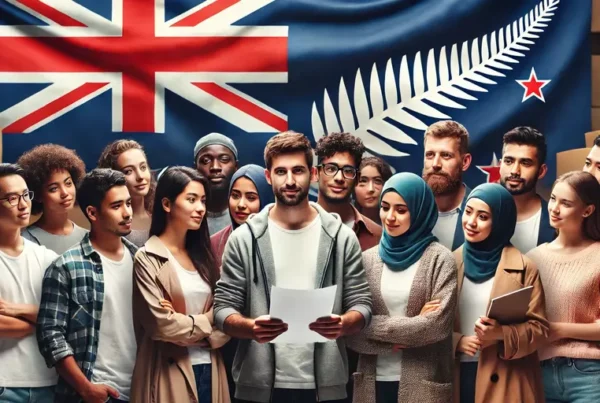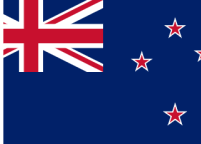Section 61 of the Immigration Act (2009) Allows Overstayers In NZ To Regain Legal Visa Status
Overstaying a visa in New Zealand can have serious consequences, but there is a possible lifeline for those who find themselves in this situation: a Section 61 request. In this article, we’ll explore what a Section 61 request entails, the eligibility criteria, the application process, and how a licensed immigration adviser can assist you in navigating this complex area of immigration law.
Eligibility Criteria
There is no specific eligibility criteria for a Section 61 request, as the decision to grant a visa is entirely at the discretion of INZ. However, there are certain factors that may increase the likelihood of a successful application, including:
- Strong humanitarian reasons or compelling circumstances that led to the overstay.
- A genuine and stable relationship with a New Zealand citizen or resident partner.
- A legitimate job offer from a New Zealand employer.
- Evidence of strong ties to New Zealand, such as family, community involvement, or property ownership.
- It’s crucial to provide a comprehensive explanation and supporting evidence for the circumstances that led to your unlawful status, as well as demonstrate how granting a visa would benefit New Zealand or uphold its international obligations.
Application Process
The process for submitting a Section 61 request is as follows:
- Prepare a detailed submission: Compile a comprehensive submission explaining the circumstances that led to your overstay, and present any supporting evidence that demonstrates the reasons for your request.
- Complete the relevant visa application form: Choose the appropriate visa category (e.g., visitor, work, or student visa) and complete the corresponding application form.
- Submit your request: Lodge your Section 61 request and relevant visa application form, along with any supporting documents, to INZ. There is no specific fee for a Section 61 request, but you may need to pay the relevant visa application fee.
- Wait for a decision: Processing times can vary significantly depending on the complexity of your case, and there is no guarantee of a positive outcome.
Reassurance for Overstayers: No Risk of Deportation
It’s natural to feel anxious about seeking help when you have overstayed your visa, but it’s important to know that coming to a licensed immigration adviser or applying for a Section 61 request does not put you at any risk of deportation. Licensed immigration advisers are bound by a code of conduct that requires them to maintain client confidentiality and act in your best interests.
When you engage the services of a licensed immigration adviser, they can provide you with expert guidance and support without disclosing your situation to INZ, unless you specifically authorize them to do so. Similarly, submitting a Section 61 request does not automatically trigger deportation proceedings. INZ considers each request on a case-by-case basis and focuses on assessing the merits of your application.
It’s crucial to address your overstay situation as soon as possible and seek professional help to minimize the potential negative consequences. By being proactive and working with a licensed immigration adviser, you can take the necessary steps to regain your lawful status in New Zealand.
Frequently Asked Questions
In this section, we’ll address some common questions and concerns related to Section 61 requests in New Zealand, providing clarity and guidance for those facing this challenging situation.
What is the likelihood of success for a Section 61 request?
The success of a Section 61 request depends on the unique circumstances of each case and the strength of the supporting evidence provided. There are no guarantees, but presenting a compelling case that highlights humanitarian reasons, strong ties to New Zealand, or a genuine and stable relationship with a New Zealand citizen or resident partner can increase your chances of success.
How long does it take for a Section 61 request to be processed?
Processing times for Section 61 requests can vary significantly depending on the complexity of the case and the workload of the immigration officer handling your application. There is no set processing time, but it’s important to be patient and prepared for the possibility of a lengthy wait.
What happens if my Section 61 request is unsuccessful?
If your Section 61 request is unsuccessful, you will remain unlawful in New Zealand and may be at risk of deportation. It’s crucial to explore other potential options and seek professional advice from a licensed immigration adviser to help you navigate your situation.
Can I apply for a Section 61 request more than once?
There is no limit to the number of times you can apply for a Section 61 request. However, multiple unsuccessful attempts may indicate a need to revise your submission or explore alternative solutions. It’s essential to work closely with a licensed immigration adviser to evaluate your options and develop a strategic approach to your case.
How a Licensed Immigration Adviser Can Help
Navigating the complexities of a Section 61 request can be challenging, and having an experienced immigration adviser on your side can significantly increase your chances of success. A licensed immigration adviser can:
- Assess your case and determine the most appropriate visa category for your situation.
- Help you compile a comprehensive submission and gather the necessary supporting documentation.
- Assist you in completing the relevant visa application form and ensuring all requirements are met.
- Liaise with INZ on your behalf and provide guidance throughout the process.
- Conclusion
A Section 61 request can be a crucial lifeline for individuals who have overstayed their visa in New Zealand. However, success is not guaranteed, and the process can be complex and uncertain. Engaging the services of a licensed immigration adviser can provide invaluable support and guidance, increasing your chances of regaining your legal status in New Zealand. If you find yourself in this situation, don’t hesitate to reach out to us for a free consultation.


















